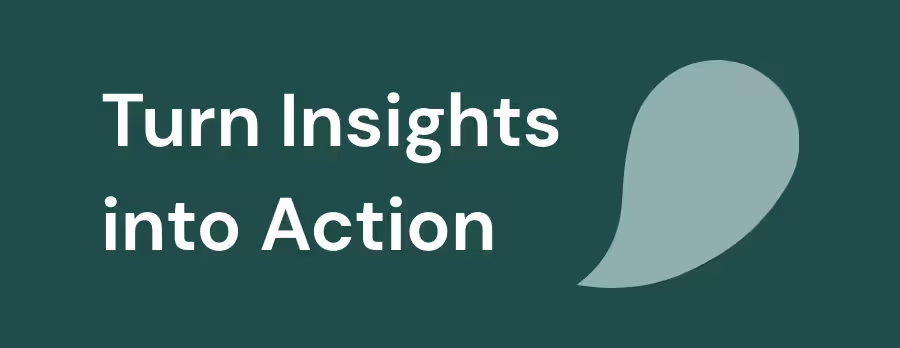Racing thoughts, excessive fatigue, difficulty concentrating — could cognitive overload at work be the cause? This phenomenon is far from trivial and can even lead to burnout if not taken seriously and addressed early.
It’s therefore important to understand what cognitive overload is, why it occurs, what its consequences are, and how to prevent and manage it.
What is cognitive overload?
Cognitive load refers to the mental resources used by the brain to learn something new or complete a task. This is a normal process — but when the available resources are insufficient to process information and make decisions effectively, it becomes cognitive overload (or mental overload).
This happens, for example, when an employee must handle several urgent files simultaneously, retain a large amount of data, or switch constantly between tasks without breaks.
A concrete example: in the same morning, an employee must finalize a report for an imminent meeting, respond to a flood of emails while being interrupted by instant messages, and plan their upcoming schedule.
The brain, saturated, struggles to process information — leading to errors, reduced performance, stress, and mental health deterioration.
Main causes of cognitive overload at work
Many workplace situations can lead to mental overload. Here are the most common.
1. Information overload
When an employee faces an excessive amount of information, the brain must retain and analyze it all — leading to saturation.
Decision-making and concentration become more difficult, sometimes resulting in decision fatigue.
This is especially true today, with constant hyperconnectivity. Employees are often expected (explicitly or implicitly) to stay connected at all times, which further fuels overload.
2. Multitasking and constant interruptions
The brain struggles when switching frequently between tasks. For example, writing a report while answering emails and responding to colleagues fragments attention.
Each interruption requires extra cognitive effort to refocus, slowing work and creating mental fatigue.
Frequent interruptions are common in open-plan offices and with online collaboration tools whose notifications continuously disrupt focus.
3. High job demands
Tight deadlines, heavy responsibilities, and work overload are major drivers of cognitive strain.
Decision-making roles add fear of mistakes to the mix, making choices even more draining.
Some sectors are particularly at risk:
- Healthcare professionals juggling medical emergencies, admin tasks, and emotional load
- Finance workers facing high numeric targets and complex regulation
- Digital sector managers constantly exposed to a flood of information and requests
4. Poor time and task management
Lack of organization and prioritization forces employees to constantly reassess urgencies, straining the brain.
Without effective planning, backlogs build up, creating a perpetual urgency loop that intensifies overload.
Impacts of cognitive overload on employee mental health
Cognitive overload has serious consequences for wellbeing, productivity, and performance.
Mental fatigue and reduced performance
Overload drains mental energy, making it harder to stay vigilant, focused, and motivated.
Tasks take longer, deadlines are missed, and overall job satisfaction declines.
Increased stress and anxiety
While occasional stress can be stimulating, chronic pressure from overload leads to anxiety and harms mental health.
Persistent mental tension can develop into chronic anxiety disorders.
Higher risk of burnout
Left unaddressed, sustained fatigue and stress may evolve into burnout. Warning signs include:
- Lower concentration
- Unusual irritability
- Inability to relax after work
- Persistent exhaustion despite rest
- Loss of motivation or sense of purpose
If ignored, these signals lead to full burnout symptoms: disengagement, sleep problems, psychological distress.
How to spot cognitive overload at work
Key signs include:
- Difficulty concentrating
- Frequent memory lapses or errors
- Longer task completion times
- Increased irritability
- Trouble disconnecting from work
- Loss of motivation
Recognizing these signs early is key to preventing deterioration.
Strategies to prevent and manage cognitive overload in companies
Prevention is the most effective approach. Here are practical strategies.
1. Prioritization and time management
Clear task prioritization helps prevent overload.
Beyond traditional to-do lists, methods like the Eisenhower Matrix (urgent vs. important) or the Pomodoro Technique (short focused work intervals) can help.
Breaking down complex projects into smaller steps also eases cognitive demand.
Training programs — or mental wellbeing tools like teale that connect employees to therapists to work on time management and work-life balance — can be valuable.
2. Cognitive recovery through breaks
Regular micro-breaks (5–10 minutes every hour) allow the brain to rest and recharge, improving attention and energy regulation.
3. Using the right tools
Adopting smart digital tools (project management software, task trackers, collaborative platforms) can streamline workflows and centralize information.
Configuring notifications to avoid constant interruptions is crucial.
4. Optimizing the work environment
A well-designed space limits distractions and supports focus.
Quiet areas, private offices, or acoustic booths can help employees concentrate without disturbance.
5. Building a supportive workplace culture
A culture that values mental health, sets realistic expectations, and recognizes effort helps prevent overload.
This also means rejecting hustle culture — the pressure to always be busy and hyper-productive, which fuels cognitive strain.





.avif)